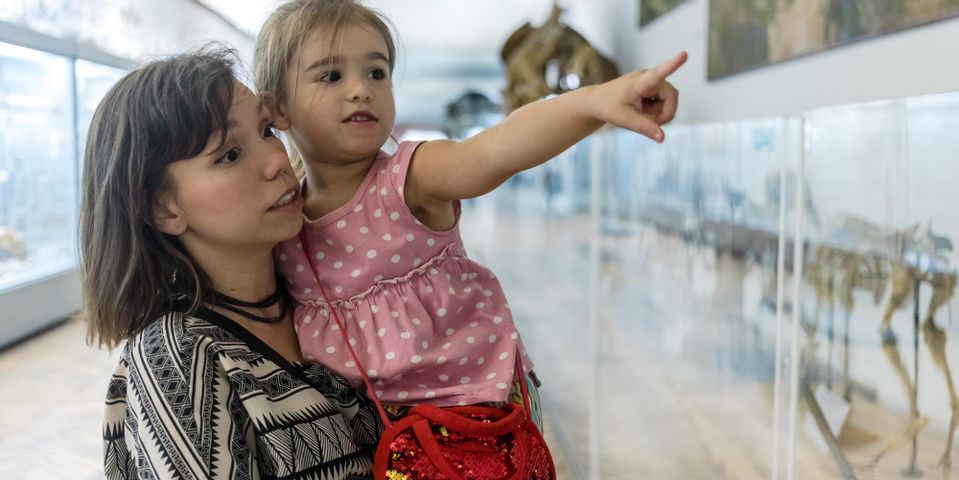Why Take Your Child to a Museum?

Museums offer excellent opportunities for early education by allowing children to get up close and personal with science, history, and art. Although you may worry that your kid will find a museum dull, you can set the right tone by explaining the exhibits and asking questions that engage your little one’s mind. Here are three reasons it’s time to take your child to a museum.
3 Benefits of Taking Your Child to a Museum
1. Museums Spark Curiosity
Curious kids ask questions. If you want your child to develop a zest for learning, head to a museum. Some children will immediately start asking questions about the exhibits, but others may need a little encouragement to begin the conversation or pose questions aloud.
2. Museums Encourage Creativity
 Museums exhibits are designed to promote creativity in kids. For instance, an art gallery may allow children to draw pictures, and a science museum may have stations that let kids conduct their own mini-experiments. Experiential exercises, which engage minds and hands, help foster a child’s creative skills.
Museums exhibits are designed to promote creativity in kids. For instance, an art gallery may allow children to draw pictures, and a science museum may have stations that let kids conduct their own mini-experiments. Experiential exercises, which engage minds and hands, help foster a child’s creative skills.
3. Museums Enrich Your Child’s Understanding of History
When children enter a museum, they’ll see historical artifacts and interactive exhibits that let kids experience the past vividly. Engagement strengthens a child’s interest in history and makes the historical events and figures they’re learning about in school seem more exciting.
To enhance your child’s early education, turn to Big Blue Bird Early Childhood Center in Lexington, KY. For more than 40 years, this trusted child care center has helped children throughout Lexington and Winchester grow into curious, creative individuals. They offer a variety of programs for children aged 6 weeks to 10 years, including a preschool program with a low child-to-teacher ratio and a summer camp that schedules weekly field trips to museums and parks to spark learning. Learn more about the center’s commitment to high-quality early education at their website, or call (859) 299-9277 to schedule a tour.
About the Business
Have a question? Ask the experts!
Send your question

